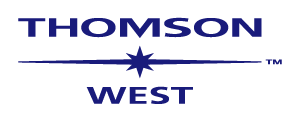Related Research Articles

Mergers and acquisitions (M&A) are business transactions in which the ownership of companies, business organizations, or their operating units are transferred to or consolidated with another company or business organization. As an aspect of strategic management, M&A can allow enterprises to grow or downsize, and change the nature of their business or competitive position.

A notary public of the common law is a public officer constituted by law to serve the public in non-contentious matters usually concerned with general financial transactions, estates, deeds, powers-of-attorney, and foreign and international business. A notary's main functions are to validate the signature of a person ; administer oaths and affirmations; take affidavits and statutory declarations, including from witnesses; authenticate the execution of certain classes of documents; take acknowledgments ; provide notice of foreign drafts; provide exemplifications and notarial copies; and, to perform certain other official acts depending on the jurisdiction. Such transactions are known as notarial acts, or more commonly, notarizations. The term notary public only refers to common-law notaries and should not be confused with civil-law notaries.

A power of attorney (POA) or letter of attorney is a written authorization to represent or act on another's behalf in private affairs, business, or some other legal matter. The person authorizing the other to act is the principal, grantor, or donor. The one authorized to act is the agent, attorney, or in some common law jurisdictions, the attorney-in-fact.

Due diligence is the investigation or exercise of care that a reasonable business or person is normally expected to take before entering into an agreement or contract with another party or an act with a certain standard of care.

Westlaw is an online legal research service and proprietary database for lawyers and legal professionals available in over 60 countries. Information resources on Westlaw include more than 40,000 databases of case law, state and federal statutes, administrative codes, newspaper and magazine articles, public records, law journals, law reviews, treatises, legal forms and other information resources.
A structured settlement is a negotiated financial or insurance arrangement through which a claimant agrees to resolve a personal injury tort claim by receiving part or all of a settlement in the form of periodic payments on an agreed schedule, rather than as a lump sum. As part of the negotiations, a structured settlement may be offered by the defendant or requested by the plaintiff. Ultimately both parties must agree on the terms of settlement. A settlement may allow the parties to a lawsuit to reduce legal and other costs by avoiding trial. Structured settlements are most widely used in the United States, but are also utilized in Canada, England and Australia.
FindLaw is a business of Thomson Reuters that provides online legal information in the form of state laws, case law and codes, legal blogs and articles, a lawyer directory, DIY legal services and products, and other legal resources. The company also provides online marketing services for law firms. FindLaw was created by Stacy Stern, Martin Roscheisen, and Tim Stanley in 1995, and was acquired by Thomson West in 2001.

Bloomberg Industry Group is an affiliate of Bloomberg L.P. and a source of legal, tax, regulatory, and business news and information for professionals. It is headquartered in Arlington County, Virginia. The CEO of the company is Josh Eastright.

A corporate lawyer or corporate counsel is a type of lawyer who specializes in corporate law. Corporate lawyers working inside and for corporations are called in-house counsel.
HotDocs is a document automation software company currently owned by AbacusNext. Version 1.0 of HotDocs was introduced in 1993.

West is a business owned by Thomson Reuters that publishes legal, business, and regulatory information in print, and on electronic services such as Westlaw. Since the late 19th century, West has been one of the most prominent publishers of legal materials in the United States. Its headquarters is in Eagan, Minnesota; it also had an office in Rochester, New York, until it closed in 2019, and it had an office in Cleveland, Ohio, until it closed in 2010. Organizationally, West is part of the global legal division of Thomson Reuters.

Thomson Reuters Corporation is a Canadian multinational information conglomerate. The company was founded in Toronto, Ontario, Canada and maintains its headquarters in that city's Bay Adelaide Centre.
Law practice management software is software designed to manage a law firm's case and client records, billing and bookkeeping, schedules and appointments, deadlines, computer files and to facilitate any compliance requirements such as with document retention policies, courts' electronic filing systems and, in the UK, the Solicitors' Accounts Rules as defined by the Solicitors Regulation Authority.
Pangea3 is a legal outsourcing services provider with headquarters in New York City, Noida, Bangalore and Mumbai, India. Pangea3 provides legal services and intellectual property services to in-house counsel in U.S., European and Japanese corporations and attorneys in international law firms. Pangea3 has been recognized as a leading legal outsourcing services company repeatedly since 2007, was voted best LPO in the New York Law Journal Reader Rankings from 2011 through 2013 and awarded LPO of the Year by India Business Law Journal from 2009 through 2013.
Ian Ballon is an American Internet and intellectual property litigator, author of books on Internet law and executive director of Stanford University Law School's Center for E-Commerce. He is the author of the 4-volume legal treatise, E-Commerce and Internet Law: Treatise with Forms 2d edition, the leading legal reference book on Internet law, which was first published in 2000. A second edition was published in 2008 and is updated annually. He is also an intellectual property litigator with Greenberg Traurig LLP, a firm of approximately 1800 lawyers.
Contract Express is a document automation program designed and developed by the Legal Solutions arm of Thomson Reuters, a Canadian multinational mass media and information firm. Contract Express is available as a stand-alone app in a private or public cloud. Users of the product are typically law firms and corporations, such as Clifford Chance and Microsoft.

Bloomberg Law is a subscription-based service that uses data analytics and artificial intelligence for online legal research. The service, which Bloomberg L.P. introduced in 2009, provides legal content, proprietary company information and news information to attorneys, law students, and other legal professionals. More specifically, this commercial legal and business technology platform integrates Bloomberg Law News with Bloomberg Industry Group's primary and secondary legal content and business development tools.

The National Law Review is an American law journal, daily legal news website and legal analysis content-aggregating database. In 2020 and 2021, The National Law Review published over 20,000 legal news articles and experienced an uptick in readership averaging 4.3 million readers in both March and April 2020, due to the demand for news regarding the COVID-19 Pandemic. T
An expense and cost recovery system (ECRS) is a specialized subset of "extract, transform, load" (ETL) functioning as a powerful and flexible set of applications, including programs, scripts and databases designed to improve the cash flow of businesses and organizations by automating the movement of data between cost recovery systems, electronic billing from vendors, and accounting systems.
Financial law is the law and regulation of the commercial banking, capital markets, insurance, derivatives and investment management sectors. Understanding financial law is crucial to appreciating the creation and formation of banking and financial regulation, as well as the legal framework for finance generally. Financial law forms a substantial portion of commercial law, and notably a substantial proportion of the global economy, and legal billables are dependent on sound and clear legal policy pertaining to financial transactions. Therefore financial law as the law for financial industries involves public and private law matters. Understanding the legal implications of transactions and structures such as an indemnity, or overdraft is crucial to appreciating their effect in financial transactions. This is the core of financial law. Thus, financial law draws a narrower distinction than commercial or corporate law by focusing primarily on financial transactions, the financial market, and its participants; for example, the sale of goods may be part of commercial law but is not financial law. Financial law may be understood as being formed of three overarching methods, or pillars of law formation and categorised into five transaction silos which form the various financial positions prevalent in finance.
References
- ↑ , additional text.
- ↑ "Thomson Reuters buys Practical Law Company". The Daily Telegraph . Archived from the original on 2022-08-07.